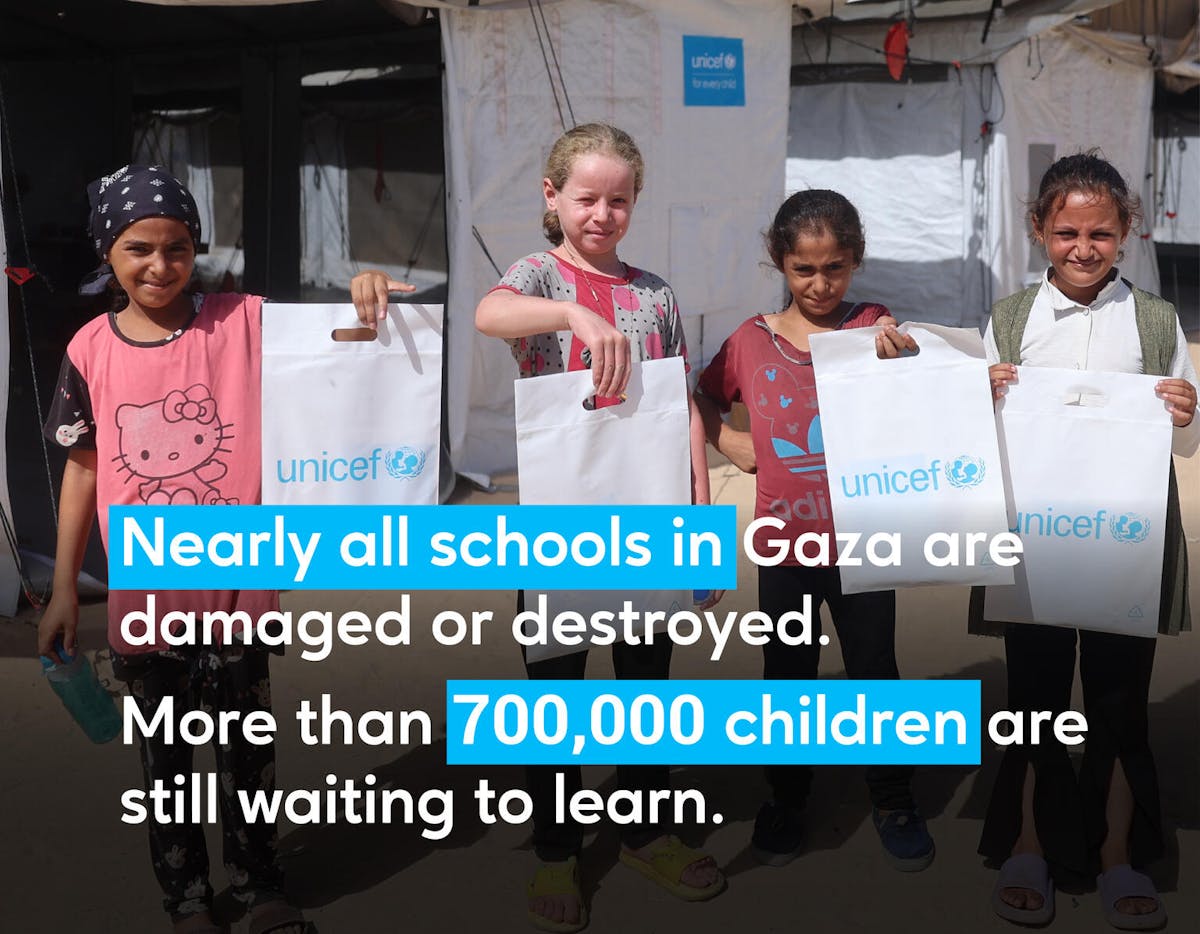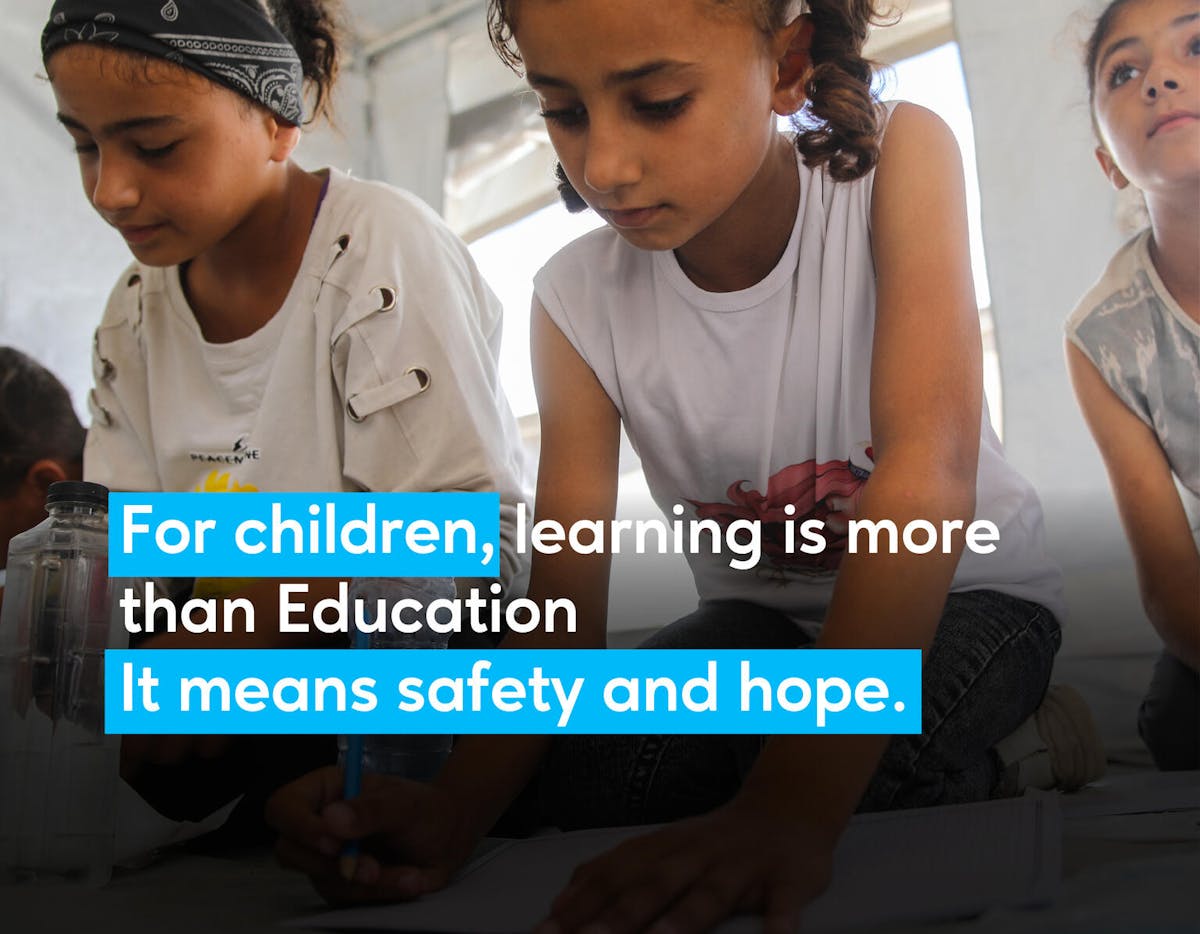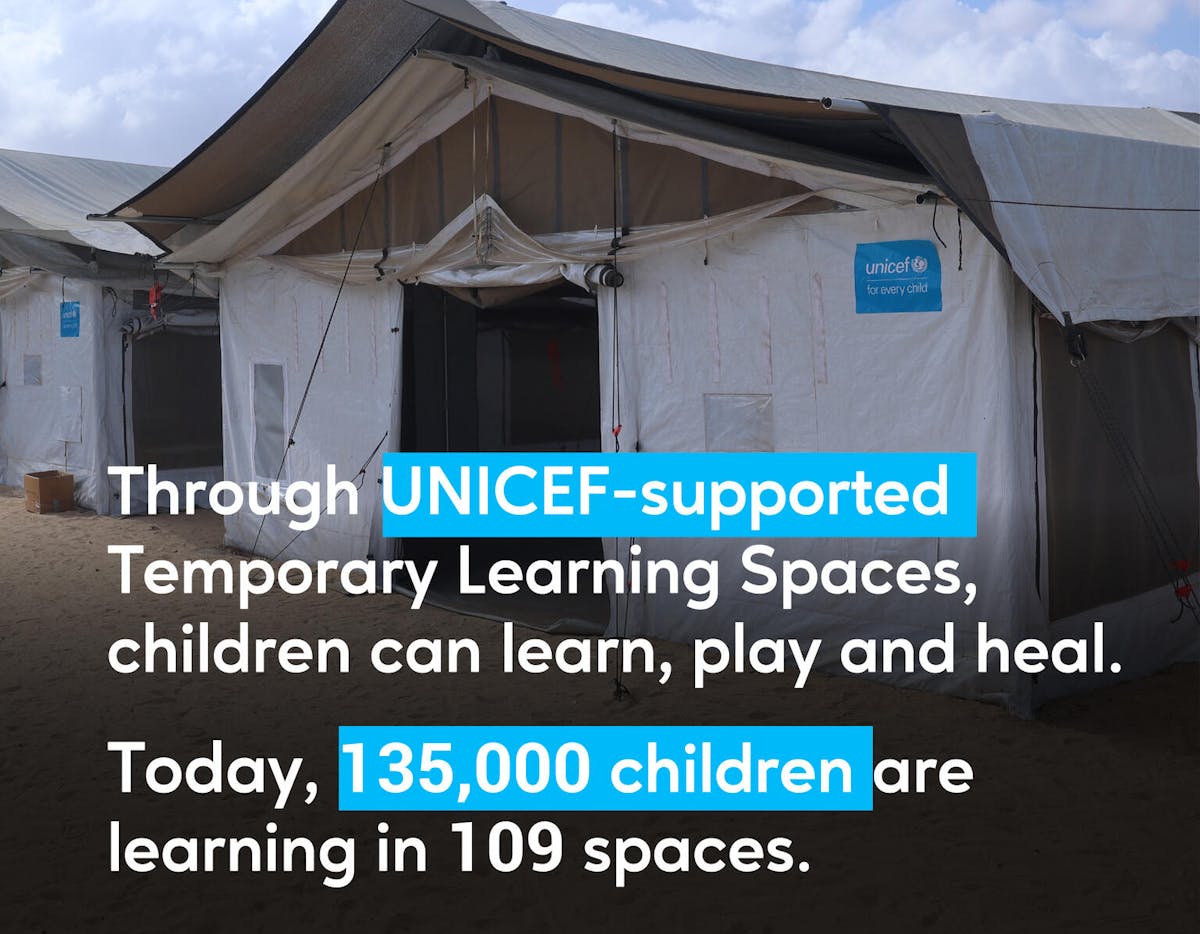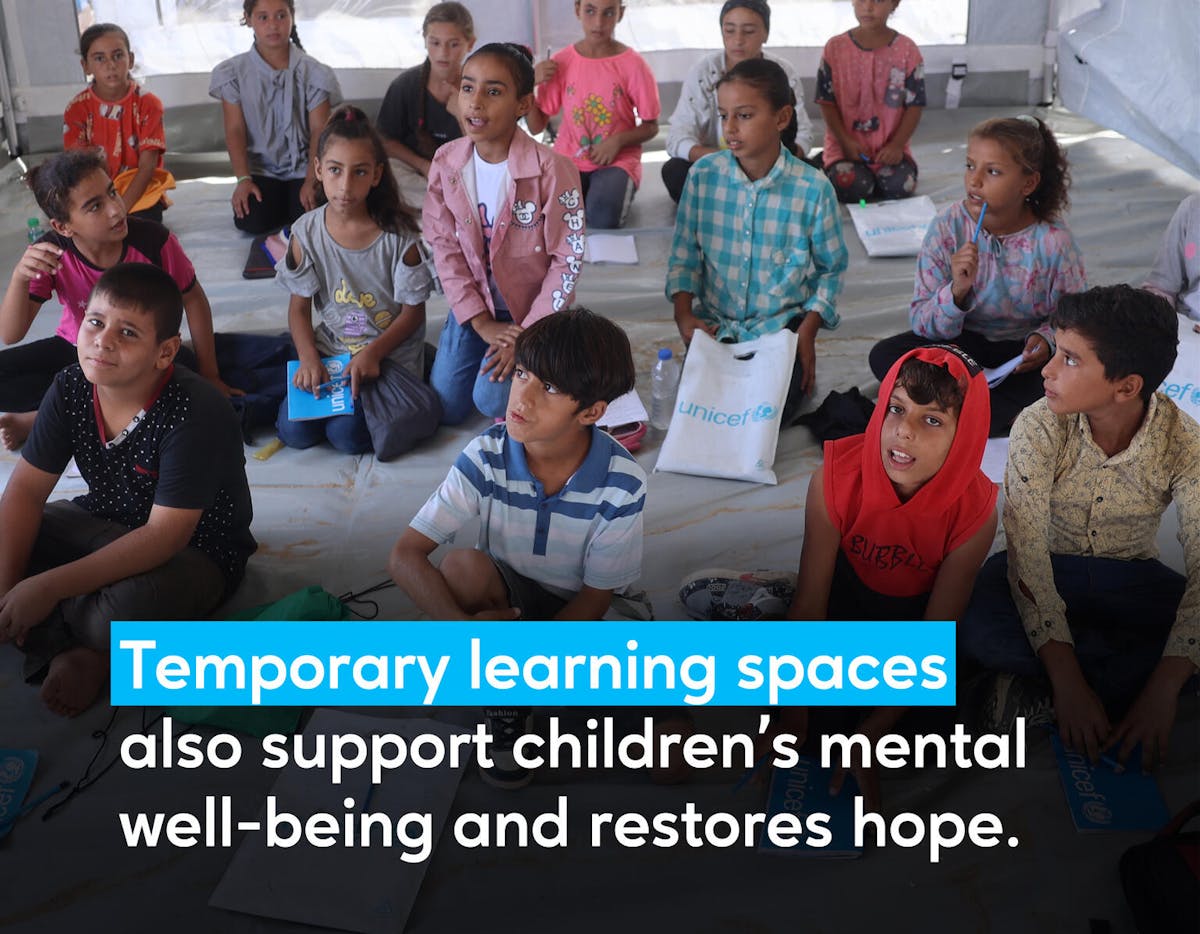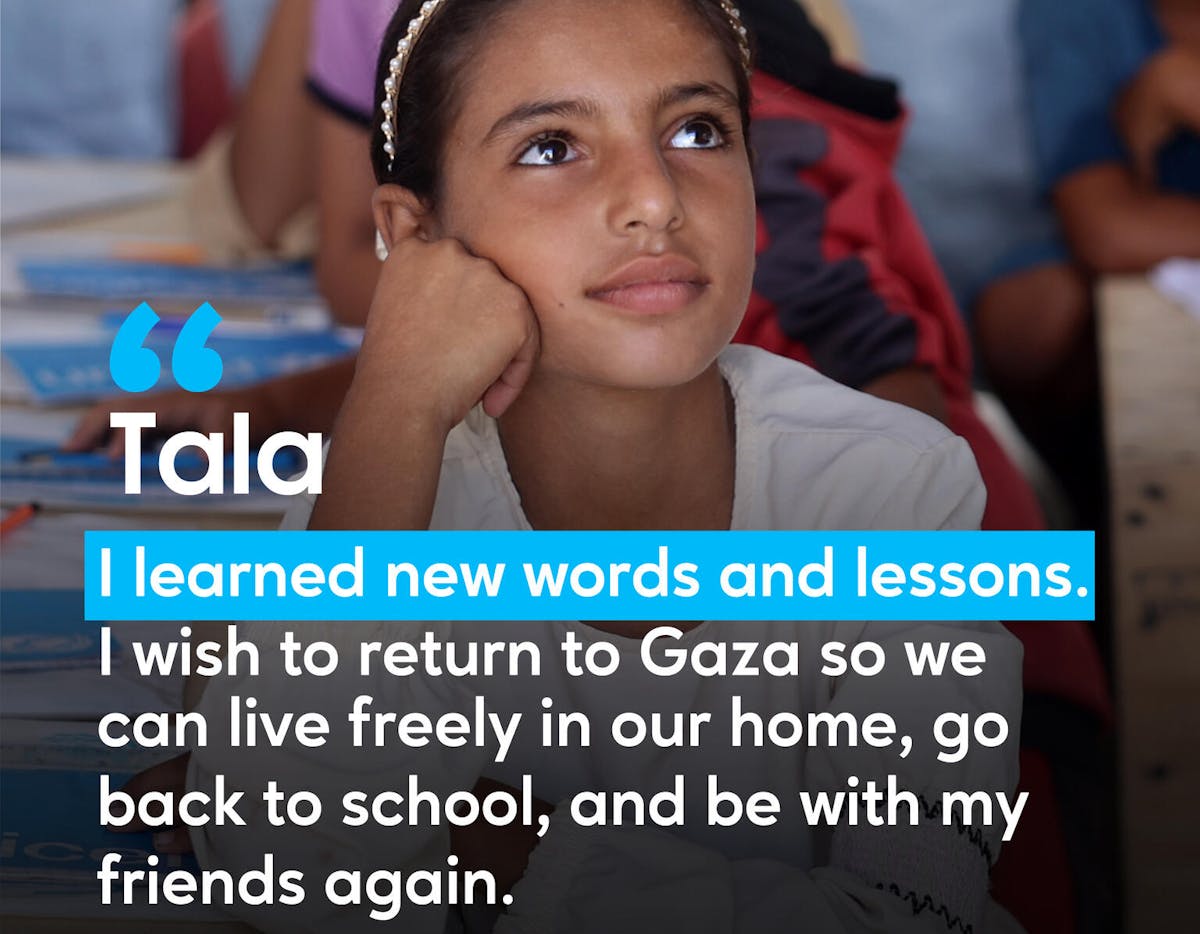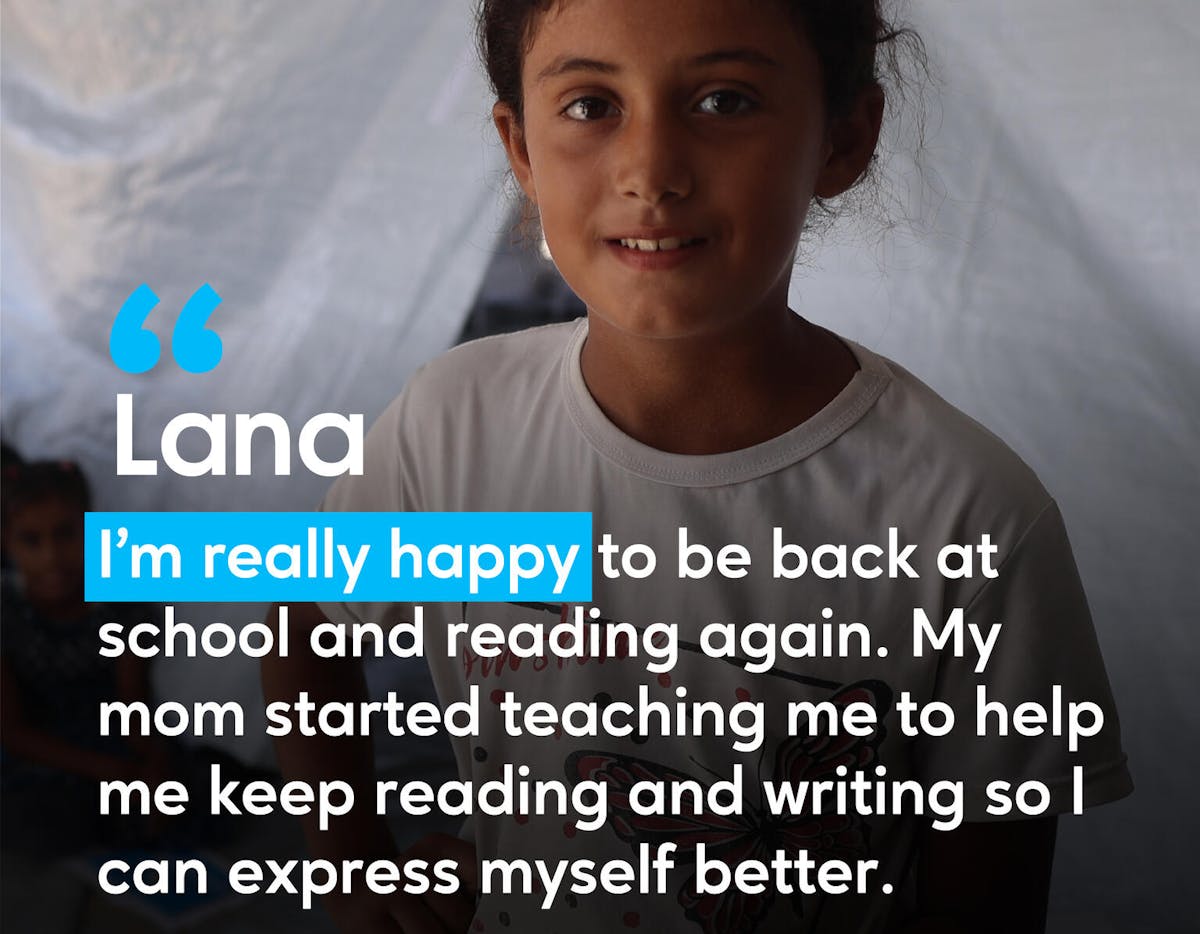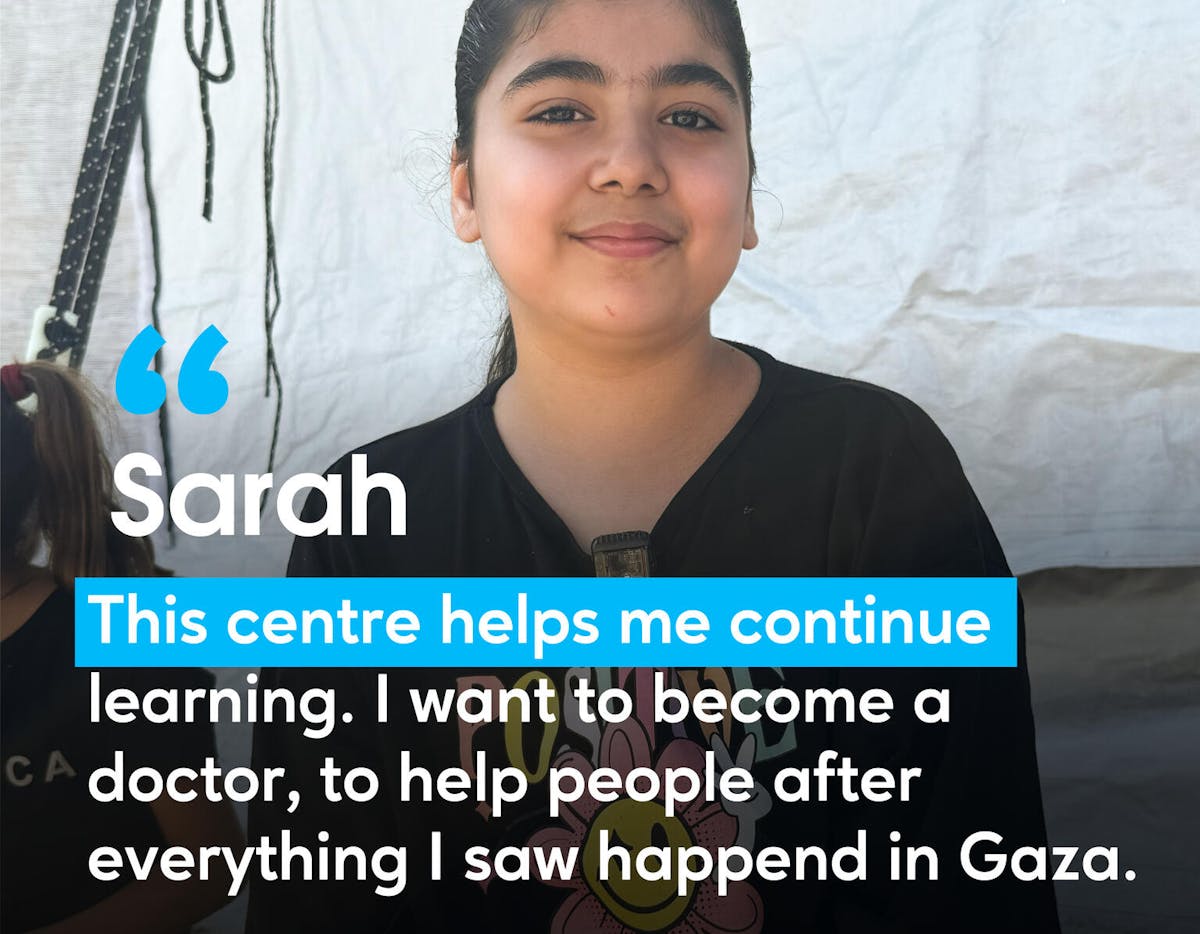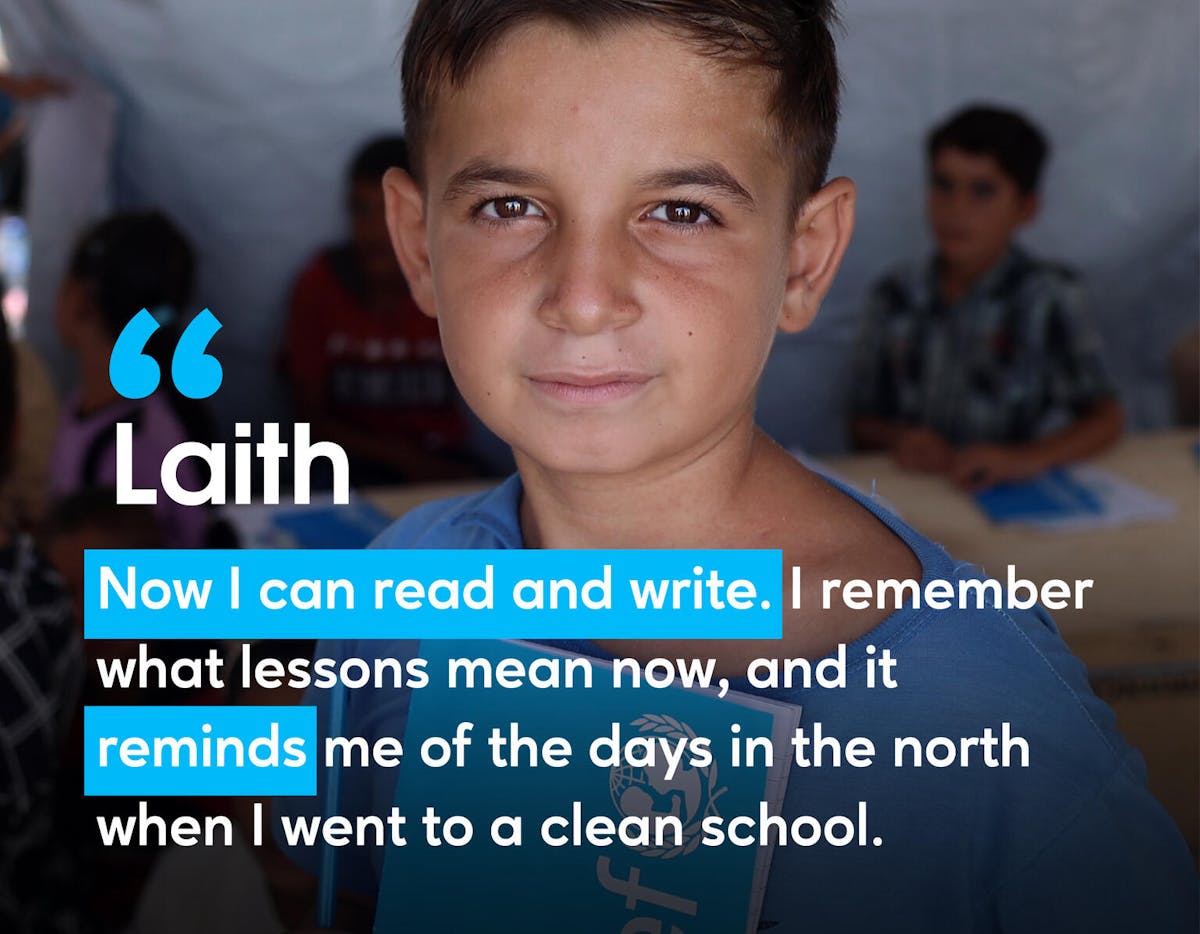
Children of Gaza Crisis
Home
Current Appeals
Children of Gaza Crisis
The ceasefire is making a difference - but more aid is needed.
For almost two and a half years, children in Gaza have suffered relentless conflict, deprivation and displacement. However, over the last few months during a fragile ceasefire, the humanitarian situation has gotten better.
"The food security situation has improved, and famine has been reversed," says UNICEF Deputy Executive Director Ted Chaiban. "More truckloads of lifesaving aid are entering Gaza, albeit not yet sufficiently to meet the magnitude of needs."
The need in Gaza remains immense, particularly as winter bites.
Alongside our partners, UNICEF has reached more than 1.6 million people with clean drinking water, and provided blankets and winter clothes to 700,000 people. Yet, with winter gripping Gaza and temperatures dropping, additional supplies are needed to support more than 1.9 million displaced people sheltering in tents and bombed out buildings.
Urgent donations are needed to help children and families survive the cold months ahead.
Educational and recreational kits enter Gaza after two years
As part of UNICEF's Back To Learning programme for 700,000 school-aged children in Gaza, 240 cartons of urgently needed “School‑in‑a‑Box” kits are ready for delivery. These boxes contain essential school supplies such as rulers pencils, notebooks, chalk that have been unavailable on the local market. Everything needed to bring children back to learning after more than two years of missing out.
Alongside them are recreational kits filled with toys, balls and play materials that support children’s emotional well‑being.
Is Aid Getting Into Gaza?
Yes, aid is getting in.
Over the last 3 months, UNICEF and our partner WFP (World Food Programme) have brought more than 10,000 trucks full of aid into Gaza - this represents more than 80% of all humanitarian cargo.
We're providing wash and dignity kits, warm clothing for children and essential health and nutrition services. This includes the second round of a routine immunisation catch-up campaign, which is currently underway to vaccinate and protect thousands of children who've missed their lifesaving vaccines during the war. Since the beginning of the ceasefire in October last year, we've established 72 new UNICEF-supported nutrition facilities, bringing the total to 196 facilities across Gaza.
Despite the ongoing challenges, the UNICEF team in Gaza continues to deliver critical supplies and services for children and their families. With your generous help, we can do more and reach further.
Whilst humanitarian access has become easier in recent months, we can't rest, not while the children of Gaza still need us.
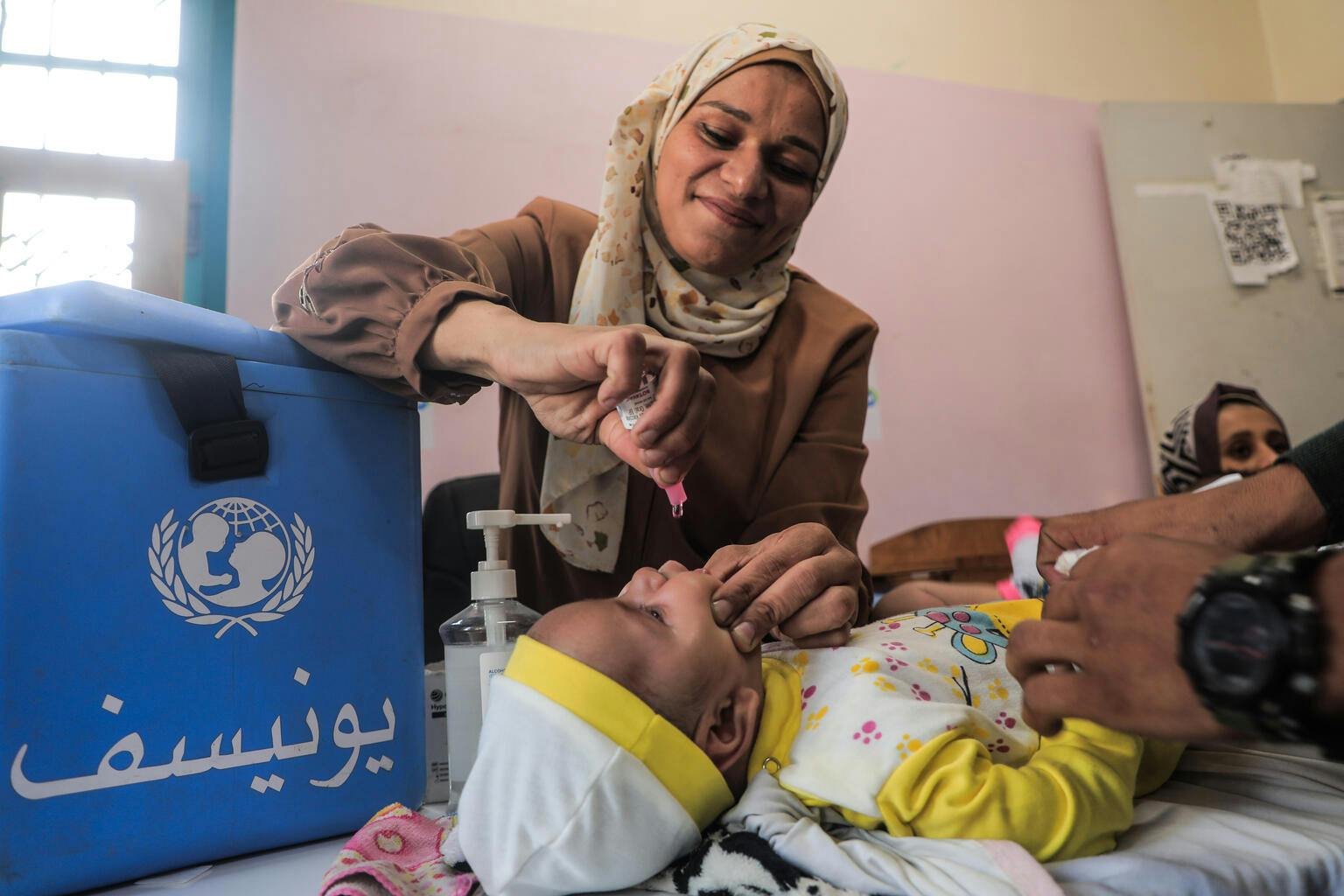
UNICEF and partners have launched a catch-up vaccination campaign across Gaza, to protect children under three from deadly but preventable diseases.
Since the beginning of October 2025, UNICEF provided the following:
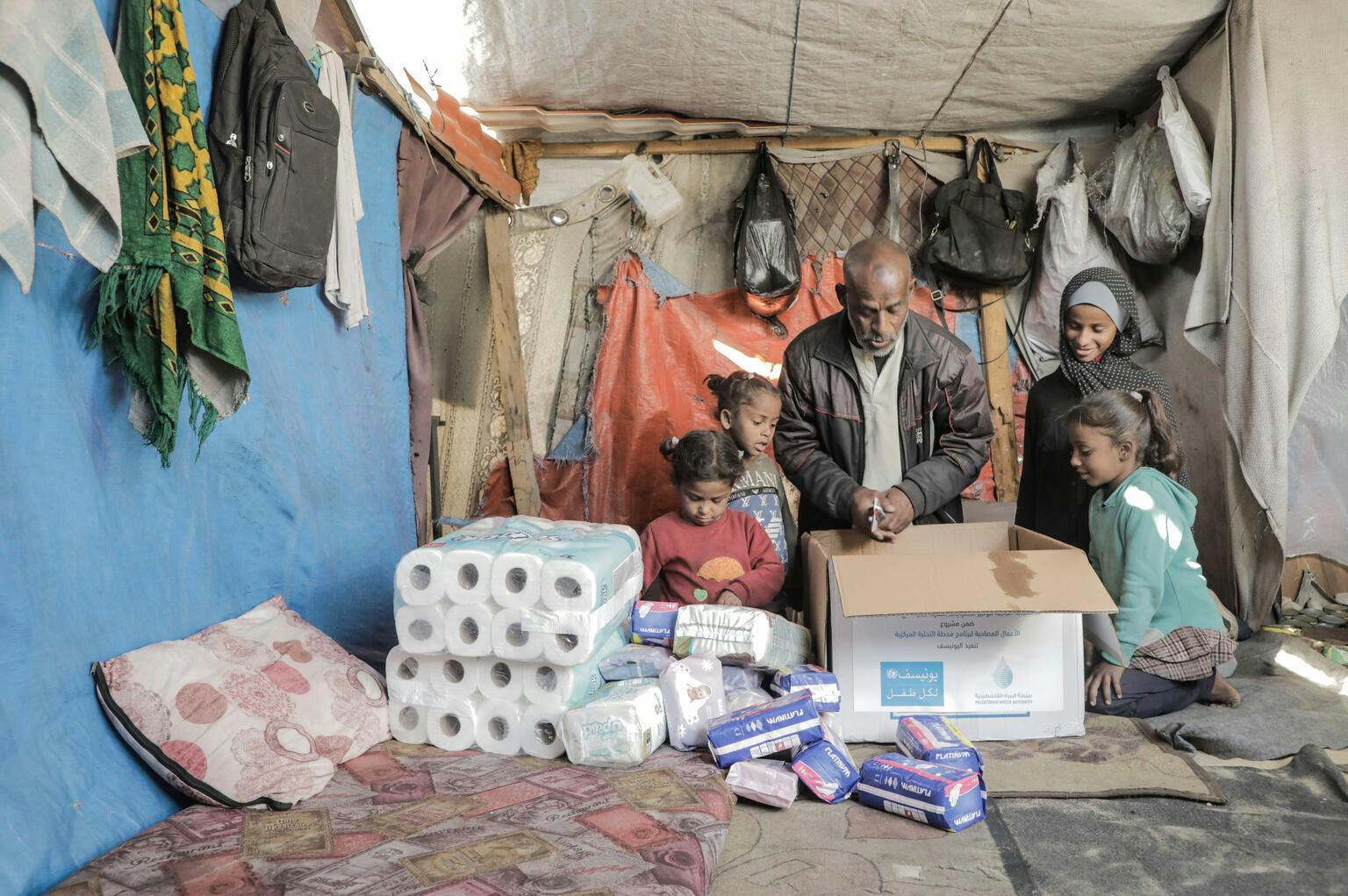
UNICEF has distributed hygiene kits to children and families in need, ensuring they have the necessary resources to maintain their health and dignity during the conflict.
Other ways you can donate.
You can donate over the phone by calling our friendly team on 0800 243 575.
You can donate direct to our bank account - please use account 01-0505-0463764-00 and the code 'gaza-ws'.
If you'd like to fundraise with your community to support our work in Gaza, you can start a Raisely or Givealittle fundraiser.
You can make a philanthropic donation - please visit our Philanthropy page for more details.
You can also help us spread awareness of the situation for kids in Gaza by sharing our appeal with your friends and family.
It's thanks to your ongoing support that we can keep delivering essential lifesaving aid to children in Gaza. From nutrition and medicine, to clean water, education and psychosocial care. No matter how long it takes or how the situation evolves.
CHILDREN IN GAZA ARE STILL HERE. UNICEF IS STILL HERE. TOGETHER WE CAN KEEP HOPE ALIVE.
FAQs
Disclaimer:
In the event that funds raised exceed UNICEF's funding requirements, the appeal no longer needs funding, or the decision is made to close this appeal, your one-off or ongoing monthly donation will go to our Greatest Need Appeal. Where possible we will communicate this with you, however in some circumstances this might not be possible.
Your life-saving monthly donations will support this appeal for a period of twelve months. After that they will go into our Greatest Need Fund to save and protect kids worldwide.
UPDATED: 3rd February, 2026
Donate to this appeal
SSL protected donation
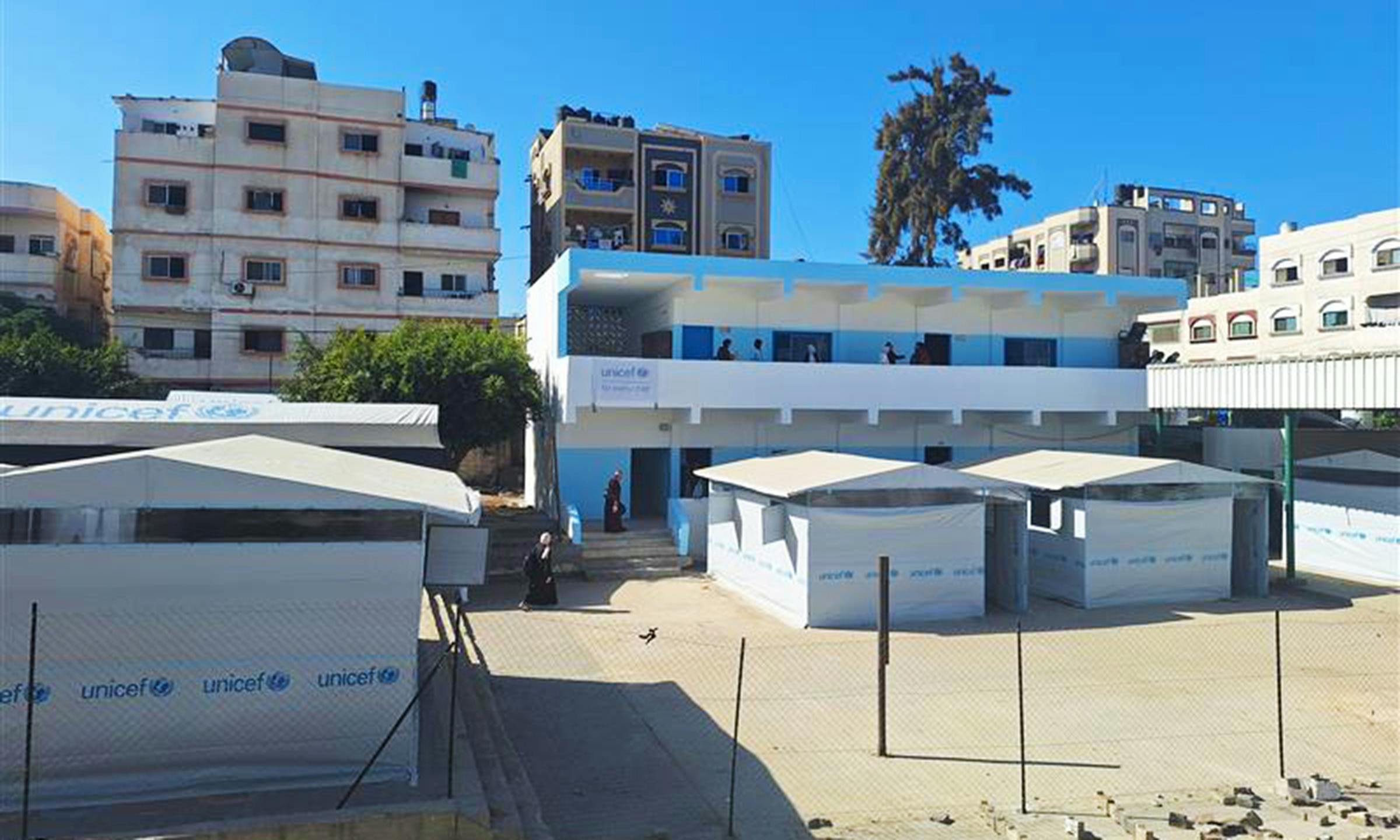
UNICEF Deputy Executive Director Ted Chaiban’s remarks following his fifth visit to Gaza and the West Bank
These remarks were made by UNICEF Deputy Executive Director Ted Chaiban at this week's press briefing, following his fifth visit to Gaza and the West Bank.
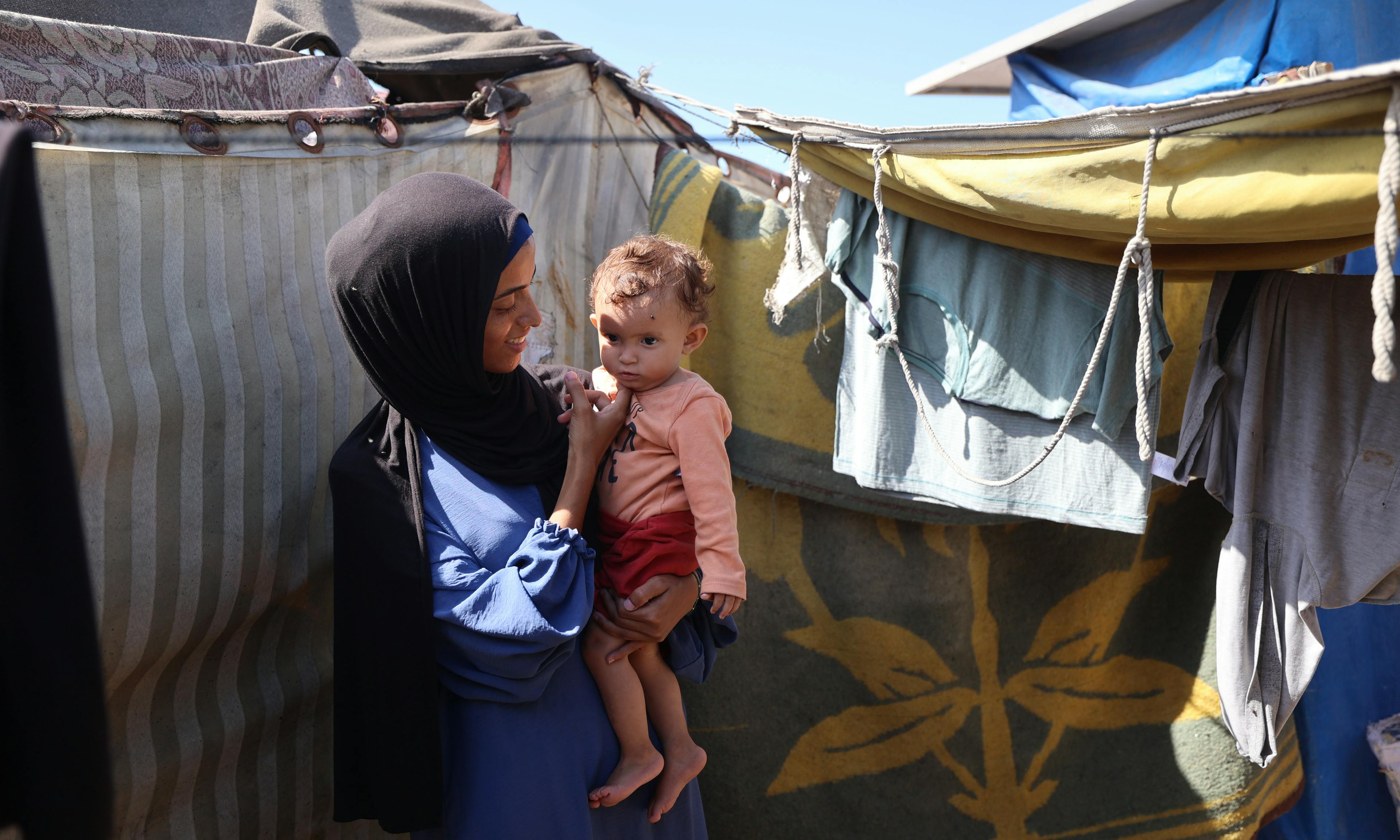
Born vulnerable: the toll of maternal malnutrition and stress in Gaza

Two years of hellish war have devastated Gaza’s children
Statement by UNICEF Executive Director Catherine Russell

Shoeless, Starving, and Nowhere to Go: The Brutal Logic Imposed on Gaza’s Children
This is a summary of what was said by UNICEF spokesperson James Elder – to whom quoted text may be attributed – at today's press briefing at the Palais des Nations in Geneva.
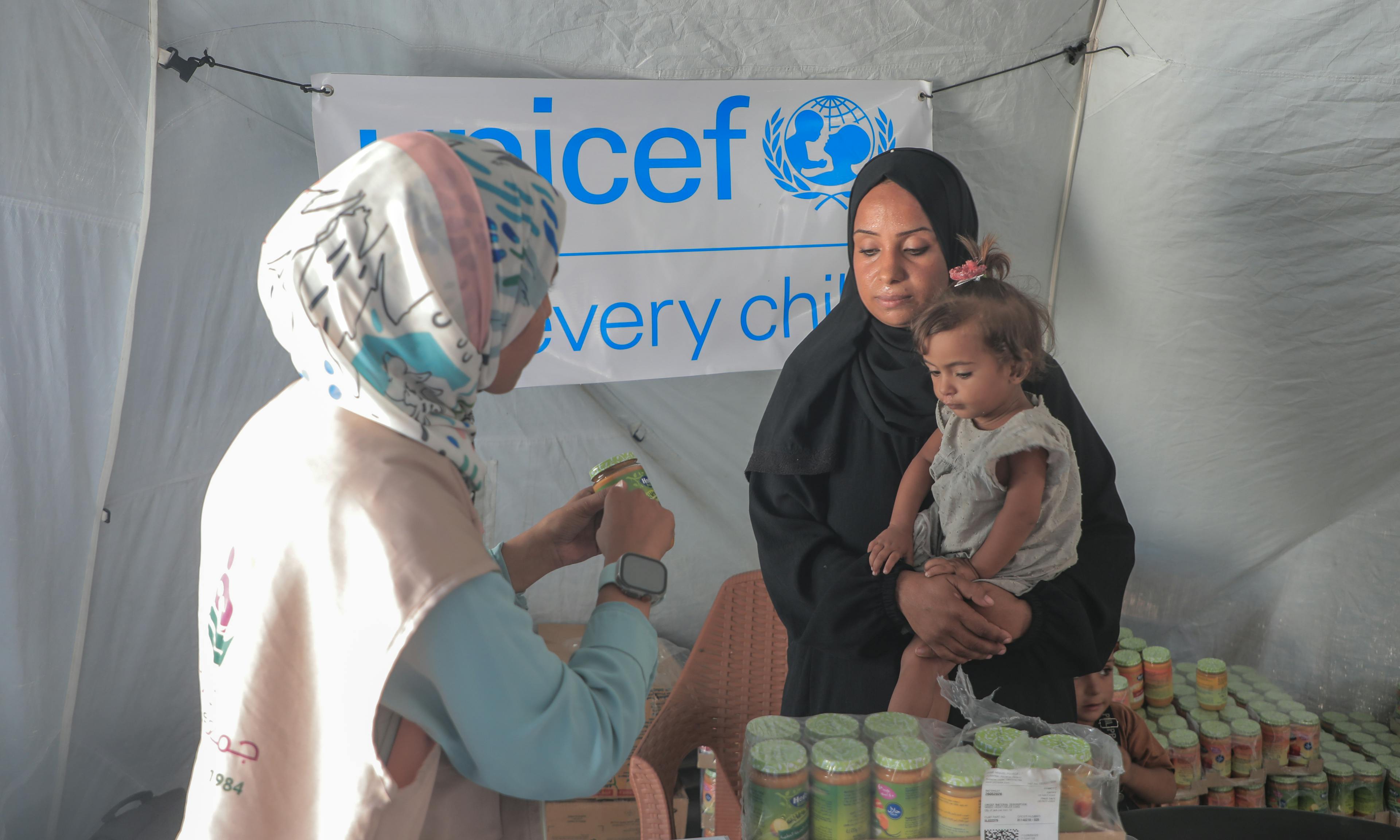
“The unthinkable in Gaza City has already begun”
This is a summary of what was said by UNICEF Communication Manager for the Middle East and North Africa Regional Office, Tess Ingram, from Gaza at the UN noon briefing
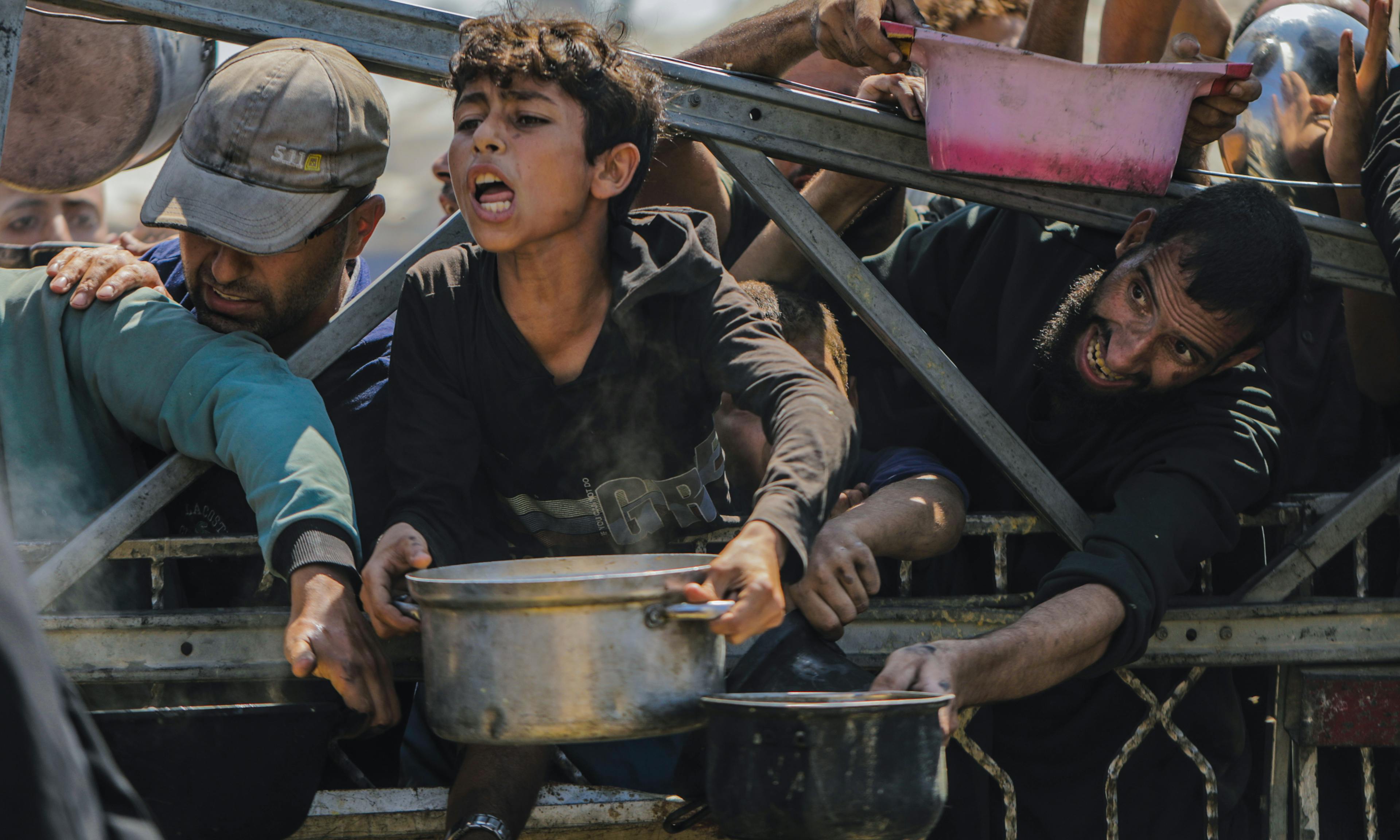
Famine confirmed for the first time in Gaza
The Food and Agriculture Organization of the United Nations (FAO), UNICEF, the United Nations World Food Programme (WFP) and the World Health Organization (WHO) have collectively and consistently highlighted the extreme urgency for an immediate and full-scale humanitarian response given the escalating hunger-related deaths.
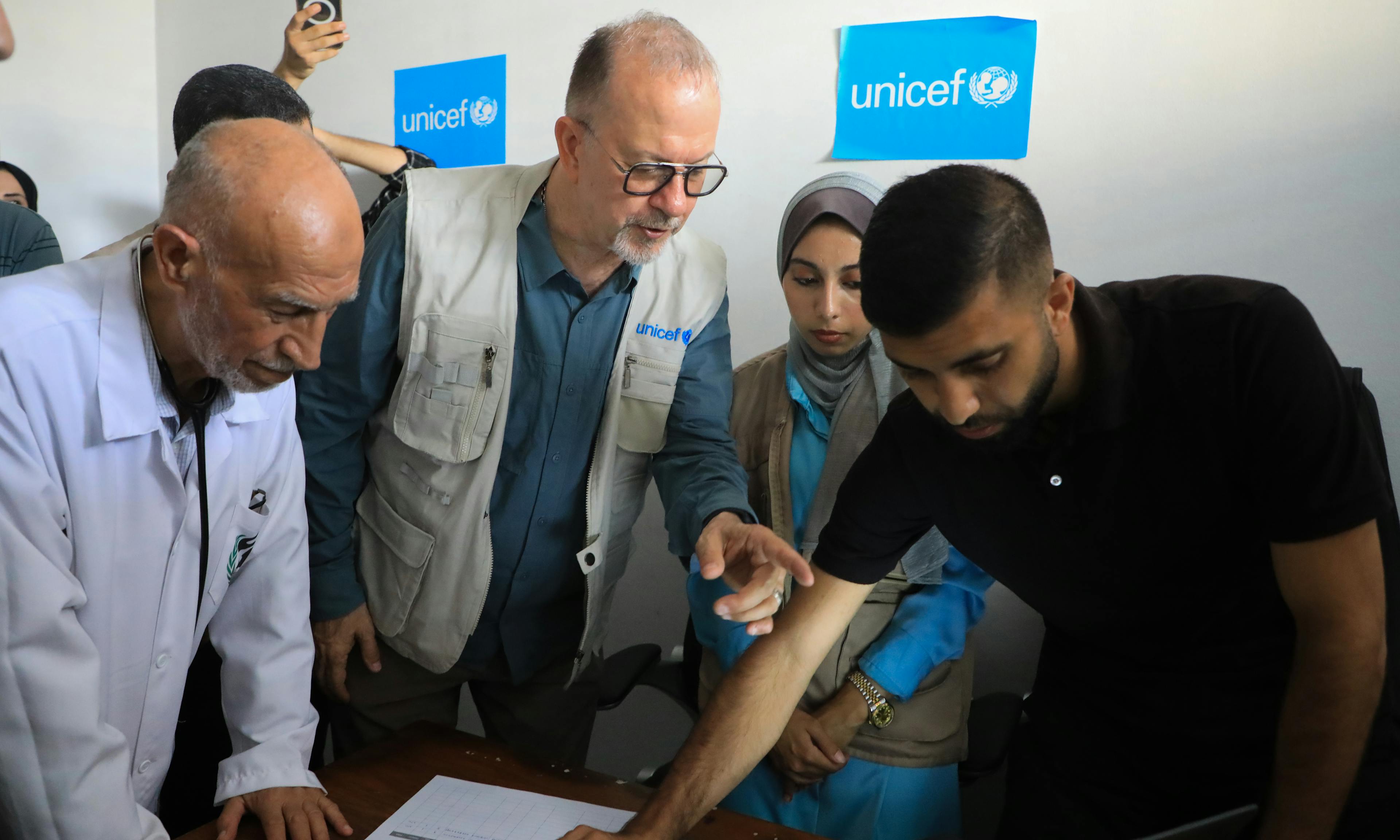
UNICEF Deputy Executive Director Ted Chaiban's remarks following his recent travel to Israel, Gaza & the West Bank
Ted Chaiban, UNICEF Executive Director for Humanitarian Action and Supply Operations, speaks with members of the medical team at the malnutrition treatment point of the Friends of the Patient Society Hospital in Gaza City on 29 July 2025.
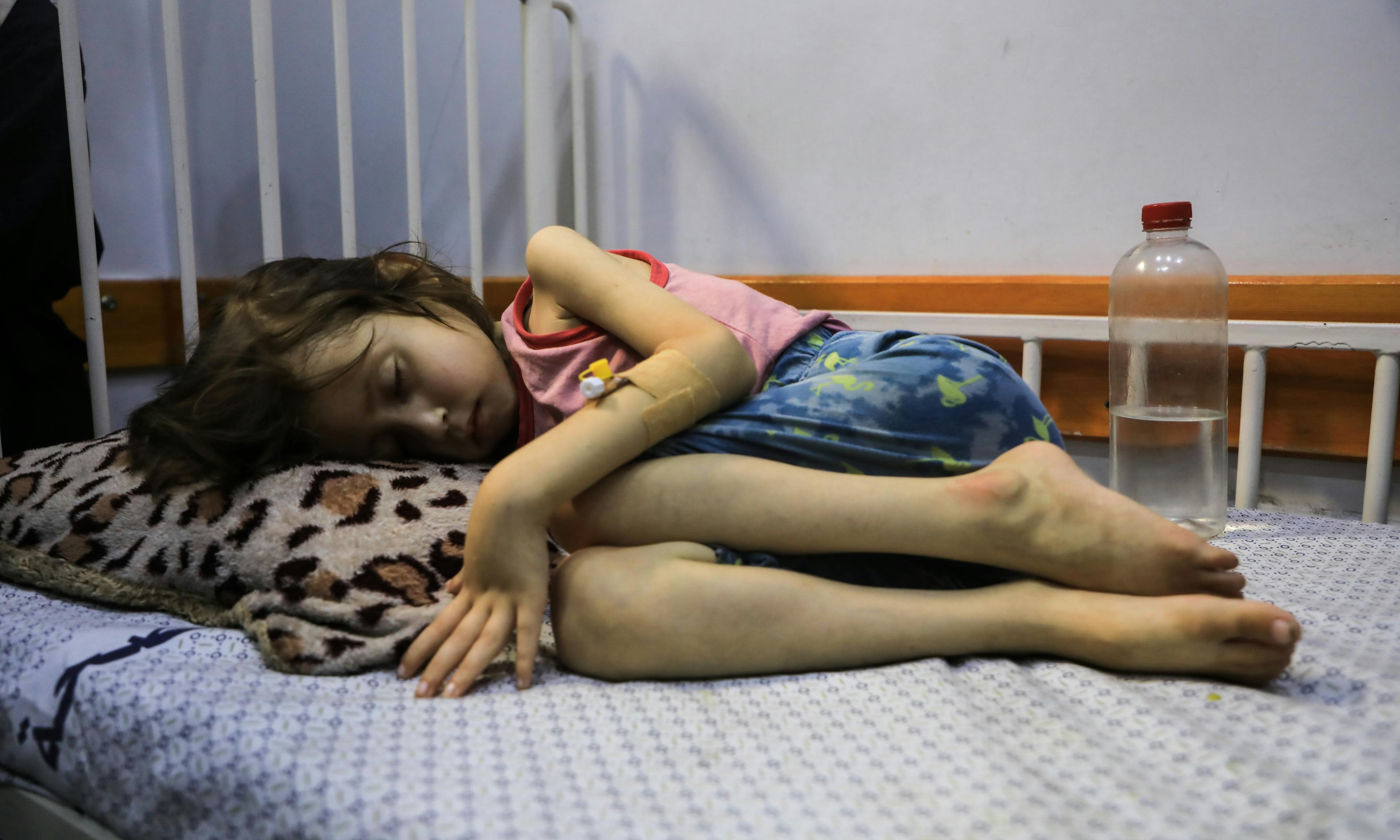
UN Agencies warn key food and nutrition indicators exceed famine thresholds in Gaza
Gaza faces the severe risk of famine as food consumption and nutrition indicators have reached their worst levels since the conflict began, according to data shared in the latest Integrated Food Security Phase Classification (IPC) Alert.
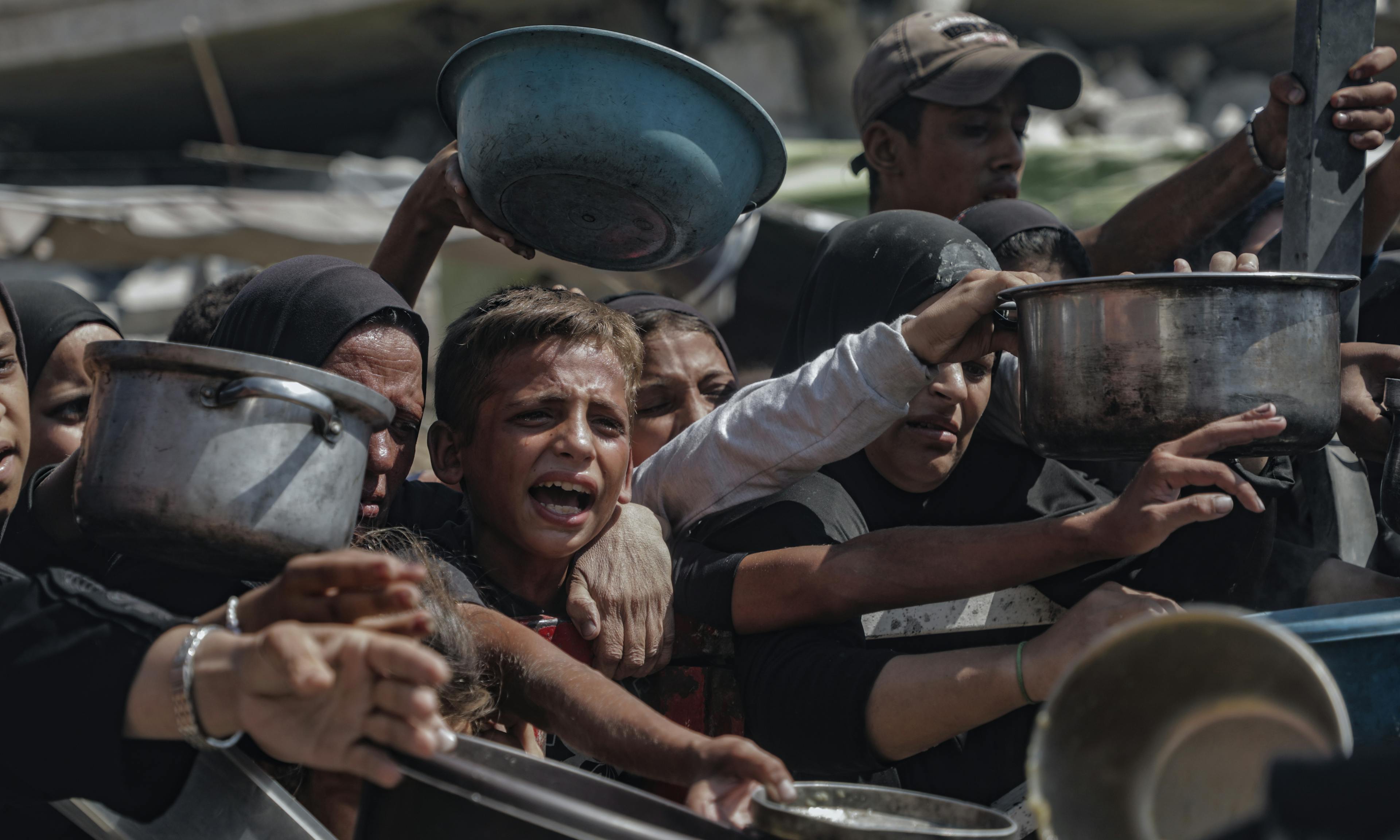
Statement by UNICEF Regional Director for the MENA Region, Edouard Beigbeder
Statement by UNICEF Regional Director for the MENA Region, Edouard Beigbeder, on the unconscionable deaths of children by starvation in the Gaza Strip

Joint statement by OCHA, UNDP, UNFPA, UNICEF, UNOPS, UNRWA, WFP and WHO on fuel shortage in Gaza
Scenes from the local market in Deir El Balah – where families face skyrocketing prices and severe shortages due to the ongoing restrictions on aid and commercial supplies – captured on 3 July 2025
